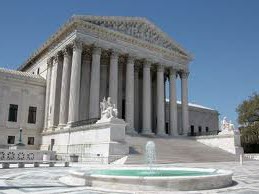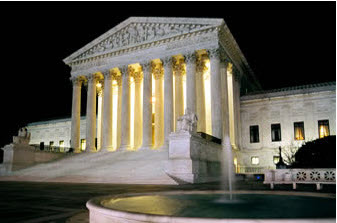The surprise that followed the introduction of President Obama’s plan for reducing carbon emissions from power plants was the discovery that protesting lawmakers are curiously out of step with many in the industry itself.
In a post to his web page, House Speaker John Boehner proclaimed that “The President’s plan is nuts”. In keeping with all who oppose the Environmental 
Protection Agency’s proposal, he stressed job loss. “Every proposal that has come out of this administration to deal with climate change involves hurting our economy and killing American jobs. That can’t be the prescription for dealing with changes in our climate”, he said.
Unexpectedly, some who actually run utility companies spoke out in favor. The plan leaves it to each state to develop its own plan to meet state-wide emission targets set by EPA, giving them the leeway of choosing whatever mix of methods gets them there.
It is already evident that “cap-and-trade”, a scheme for plants to buy and sell emission permits or “credits” among themselves, holds greatest appeal. Some utility owners have indicated that being able to trade those “credits” throughout their multi-state systems gives them a flexibility they think is workable. Moreover, concrete regulations, so long in coming, at least have the virtue of removing uncertainty, which businesses need in order to plan their futures. After years of not knowing what government actions might be taken, executives of many of the power companies have expressed satisfaction with the new regulations, especially their flexibility.
“By trading on carbon credits, we’ll be able to achieve significantly more cuts at a lower cost,” said Anthony Alexander, president and CEO of FirstEnergy, a major user of coal in plants spanning Ohio to New Jersey. Speaking for American Electric Power, with coal-fired plants in 11 states, VP of environmental services John McManus concurred. “We view cap-and-trade as having a lot of benefits… It could keep the cost down. It would allow us to keep coal units running for a more extended period. There are a lot of advantages.” AEP’s CEO Nick Akins said much the same. He said had supported a cap-and-trade bill that was passed in the House in 2010 but died in the Senate because “it was a tradable activity that … really answered the greenhouse-gas question in a cost-effective manner”. AEP spokeswoman Melissa McHenry adds, “Any approach that includes flexibility, such as cap-and-trade, would be better than a prescriptive limit on unit emissions”, referring to limits set for each individual plant.
contrarians
They might have trouble explaining just why, but politicians are running in the other direction. Cap-and-trade leaves it to the marketplace to decide how to accomplish a goal, yet in the Republican and Tea Party world it has inexplicably become politically poisonous.
Massachusetts under Governor Mitt Romney was an original member of the Regional Greenhouse Gas Initiative, a cap-and-trade alliance uniting the northeastern states, but when he ran for president in 2012 he found it expedient to disavow the scheme, much as he disavowed the predecessor to Obamacare he had introduced in Massachusetts. New Jersey was a member of the northeastern consortium, but looking ahead to his presidential aspirations, Governor Chris Christie took the liberty to remove his entire state from the plan in 2011. Ohio’s governor, John Kasich, is another possible entrant in the presidential sweepstakes. His office has spoken out against the EPA’s plan.
Democrats alike are running from it, if they come from coal-producing states. Alison Grimes, the Kentucky Democrat who hopes to unseat the senate minority leader, was indistinguishable from rival Mitch McConnell when she fumed that she will “fiercely oppose the president’s attack on Kentucky’s coal industry because protecting our jobs will be my No. 1 priority“. It was an overly strident pronouncement that will probably alienate her essential out-of-state donors.
Senators John Barrasso of Wyoming, a former doctor who should have concerns for coal’s health issues, and Heidi Heitcamp of North Dakota shared a Wall Street Journal op-ed that mostly painted a picture of towns turned to dust by a loss of jobs. We have to call it a mawkish attempt (“The lost revenue base hurts public schools, police and busing services for seniors who can’t drive. Teachers, laborers and doctors move away”) because the high-quality western coal will find an eager market and pricing power by shipping to a China that can’t get enough, and it’s hard to pity North Dakota which is booming from its shale oil deposits in the Bakken formation.
inequality
Different states have to cut back more than others. A spokesperson for AEP complained about this saying, “Climate change is a global issue, and some states should not bear a disproportionate share of the cost of U.S. action to cut emissions”. The states that will bear a higher cost created their current predicament for having done disproportionately less to curb emissions all these years and should not expect states that have taken taken action, shortening their path to the 2020 goal, to share their penalty for having done nothing.
The Wall Street Journal editorial in response to the administration’s announcement focused on cost. It was titled “Carbon-Income inequality” calling “Obama’s new energy rule…a huge tax on the poor and middle class” that will increase the inequality Obama inveighs against. The question — here, not in the editorial — is whether dollars on a monthly electrical bill are reason enough to go on polluting and risking the planet. In a country where 5% of the world’s population consumes 20% of its power, people will likely discover that they do not need to refrigerate their homes, that air conditioner settings in the high 70s are decidedly comfortable, that rooms needn’t stay lighted when no one is in them, that refrigerators needn’t be on their highest setting for foods to stay fresh, and will cut back those monthly bills.
imperial president
Conservatives again accused Obama of abuse of power, of using executive authority to end-run Congress. “The agency is bidding to transform and nationalize U.S. energy the way Obamacare is doing to medicine, but in this case without even the pretense of democratic consent”, the Journal editorial continued. “This regulation will kill jobs and force energy rates to skyrocket, so it’s no wonder President Obama is circumventing Congress to implement his latest job-killing regulation,” Reince Priebus, chairman of the Republican National Committee, said in reaction to the EPA announcement.
But authority for the EPA’s action is baked into the Clean Air Act, which dates as far back as 1963 and was greatly expanded under the Nixon administration and still further since, and the Supreme Court in 2007 held that greenhouse gases are “air pollutants” subject to EPA regulation. Not so, said Boehner. That carbon dioxide is harmful to our environment is “almost comical”, he said on George Stephanopoulus’ Sunday talk show. “Every time we exhale, we exhale carbon dioxide”.
how it works
Under cap-and-trade, the cap is the amount of emissions an area is allowed to emit by common agreement, as in the northeast cooperative, or by law, as the EPA proposes under the Clean Air Act of 1970. The cap declines every year toward its targets, a 25% reduction of emissions from the base year of 2005 by 2020 and a 30% reduction by 2030. The administration gave industry a big gift by choosing 2005, which it claims is used as a benchmark internationally. U.S. power plants have already cut emissions by some 17% since then; they haven’t far to go to reach 25%. Those concerned for climate change do not believe the EPA’s actions go anywhere near far enough.
The EPA expects their targets will lead to annual cuts of up to 500 million tons of carbon in the next decade and more than one billion tons of carbon annually thereafter.
If a state adopts this approach, each power plant would annually be issued a number of “credits” equal to its assigned quota for that year. A plant that has taken steps to reduce emissions — by retrofitting scrubbing equipment, for example — might have leftover credits it doesn’t need. Those expecting to exceed their quota could buy those excess credits — rights to emit more than their quota — in an exchange set up for trading the carbon dioxide allowances.
To win adherents, the EPA offers broad latitude to states devising their plans to reduce including — cap-and-trade groupigs, expanded use of renewables (e.g., solar, wind), conversion from coal to natural gas, consumer efficiencies and conservation, the still unproven sequestration of CO2 into ground repositories, and conceivably even offsets whereby paying for energy-producing or energy-saving projects elsewhere — in forestry or farming, say — can earn a utility extra pollution allowances.
But cap-and-trade is expected to be the most-used option. In a New York Times article, a commissioner of the northeastern program said, “We’ve had states from all over the country calling up and asking, ‘How does this work, and how can it work for us?’” The irony in the conservatives’ opposition is that in the actual world cap-and-trade partnerships are proliferating, both in the U.S. and across the globe. “Over the past decade, carbon allowances have become the world’s newest commodity”, says a New York Times canvass of the phenomenon. Trading desks have popped up on their own to buy and sell credits “from China to Norway to Kazakhstan…with the number of people living in places that have such a system nearing one billion, or 14% of the world’s population, including about 80 million Americans”. And nothing requires such programs to stop at state lines or even national borders. Quebec just joined the California plan this year.
In its near decade of existence, the European Emissions Trading System has been useful to naysayers who needed an example to prove cap-and-trade cannot work. But the reasons for that failed system are understood and avoidable. Unlike the U.S., Europe didn’t have an emissions monitoring system in place and an honor system left power plant’s free to overstate their emissions to gain the maximum number of credits doled out like Monopoly money at the start. The inflation of credits caused their price to collapse and remain at levels too low to induce plants to make improvements. They bought the cheap credits instead.
But those lessons have been put to use by other systems such as California’s, which began last year and at $11 a ton now has a carbon price higher than any other cap-and-trade market.
Emphasis on jobs
Concern for job loss comes primarily from the coal mining states. Sen. Mike Enzi, Wyoming Republican, quoted in the Washington Times said, “The administration has set out to kill coal and its 800,000 jobs. If it succeeds in death by regulation, we’ll all be paying a lot more money for electricity — if we can get it. Our pocketbook will be lighter, but our country will be darker.”
That job loss claim derives from the oft-stated threats that all or most or half of coal-burning plants will be shut down rather than retrofitted with emission-reducing technology. Hence the darker country. Yes, many plants will be shut as being too uneconomical for further investment, but some of these are plants that have been operating for over 50 years, doggedly fighting off pollution controls for decades, as we chronicled in this story. Two of the units at Kentucky’s largest plant were built in 1957 and 1963. They and others have had a very long license to pollute. Their time has come.
As for widespread shutdowns, it is difficult to imagine that the power industry will opt for general euthanasia. If they instead go for the alternative — scrubbers, filtering equipment or gas — those conversions will create plenty of jobs. It will be interesting to look back in future years to see how the split shakes out.
sue!
The rush to lawsuits will run counter to the many states that have before the EPA announcement shown interest in either forming cap-and-trade programs or joining existing plans, which are up and running smoothly. Those that cross state boundaries offer the added benefit of a widened trading universe.
But that’s exactly what the coal industry and its supporters will attack. The EPA’s authority for the new regulations rests on little-used section 111(d) of the Clean Air Act that requires states to manage compliance with pollution benchmarks set by EPA. Lawsuits are expected to insist that the law limits the EPA to prescribing “standards of performance” separately for each plant and gives the agency no authority to allow multiple-plant schemes such as cap-and-trade. So we will have the irony of those who sound the alarm of plant closures insisting that the EPA confine individual plants to meet standards on their own, thereby increasing the likelihood of plant closures.
Other countries are watching. A dozen institutions in China have been “tasked with immediately analyzing the new rule”. China is currently experimenting with carbon exchanges in seven cities and provinces, and while indifferent to the threat of global warming, is clearly thinking of establishing a national market to tamp down emissions in a country that now suffers from the world’s worst air pollution. California and Europe are even talking to China about combining.
against the tide
The Rocky Mountain Institute, a non-profit that deals in energy efficiency, makes this point:
More than half a century’s worth of data from the Energy Information Administration shows that the United States’ GDP grew by more than 720% between 1950 and 2013, while energy consumption per dollar of GDP declined by more than 60% during the same period. The U.S. has retained its place as one of the most robust economies in the world while steadily decreasing the energy and carbon intensity of that economy. Lately this has been especially true of electricity: in 2012 alone, weather-adjusted electricity used per dollar of GDP fell by 3.4%.
Yet the Journal reports that Mitch McConnell has introduced a bill that would snuff out the EPA rule altogether saying, “It’s clear that the president is trying to impose this national energy tax via executive order because he knows the representatives of the people would never vote for it”. Fitzgerald’s famous closer fits: Our Congress “beat[s] on, boats against the current” determined that we be “borne back ceaselessly into the past”.
Jun 10 2014 | Posted in
Energy & Climate |
Read More »




